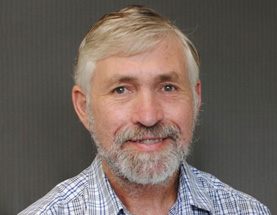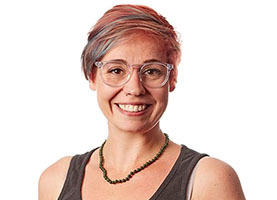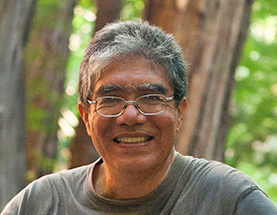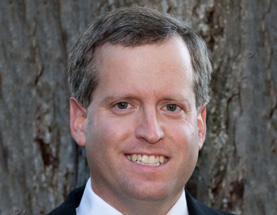Discover Surviving Hard Times
Surviving Hard Times

Surviving Hard Times
Author: Richard Jacobs
Subscribed: 2Played: 162Subscribe
Share
© 2022
Description
It's one thing to listen to doom and gloom about
food and fertilizer shortages, skyrocketing prices,
the cost of living, or your job being outsourced
overseas or eliminated due to automation.
It's another thing to hear practicable, immediately
actionable advice from experts who can help you reduce
the fear, anxiety, and burden of these problems.
Tune in now to the Surviving Hard Times Podcast with
Richard Jacobs.
food and fertilizer shortages, skyrocketing prices,
the cost of living, or your job being outsourced
overseas or eliminated due to automation.
It's another thing to hear practicable, immediately
actionable advice from experts who can help you reduce
the fear, anxiety, and burden of these problems.
Tune in now to the Surviving Hard Times Podcast with
Richard Jacobs.
179 Episodes
Reverse
John Sheppard joins this episode to discuss the biological processes attached to beer fermentation. As a Professor in the Department of Food, Bioprocessing and Nutrition Sciences at NC State, John teaches in the Bioprocessing Science major with particular interests in upstream processes and validation. Click play and you will discover: The difference between major beer production and craft beer production. How John’s brewing research influenced his career path. The physical and chemical factors that determine beer quality. How breweries make low and non-alcoholic beer. Wondering how scientists contribute to the innovation behind beer fermentation? If so, this episode is sure to pique your interest! Click here to learn more about John and his work! Episode also available on Apple Podcasts: https://apple.co/3bO8R6q
Joining the podcast today is Katie J. Field, Professor of Plant-Soil Processes at The University of Sheffield. With a deep fascination for plant and fungal interactions, Katie spends her time exploring the huge impact this relationship has on the world we live in today. Presently, Katie’s research focuses on plant-fungal symbioses and their applications in sustainable agriculture, and the evolution, diversity, and ecology of plant-fungal symbioses. These investigations have led her to an array of interesting discoveries – all having to do with the innate complexities within our planet’s ecosystem… Tune in now to discover: Typical plant-fungi associations, and how they arise. What plant-fungal symbioses is, and how it occurs in nature. How fungal roots can protect plants against disease. The complexity of soil, and how it influences plant-fungal interactions. So much of the plant life that we are familiar with has connections with fungal partners. Wondering how this plays into the overall functionality of our planet’s ecosystem as we know it? Jump into the conversation now to find out! You can learn more about Katie and her research by clicking here! Episode also available on Apple Podcasts: https://apple.co/3bO8R6q
What might the next few months look like in terms of the economy, and how could it impact you personally? What about the next few years? This is just one of many important questions answered by today’s guest, real estate investor, and mentor, John Williams. Before the age of 30, Williams sold $100 million in real estate and has represented many high-profile individuals in the real estate and investment sectors. He also creates educational YouTube videos packed with economic insights to help you anticipate and plan for what's to come. Press play to learn: Advertising: how major corporations will use it in the coming months, and what this will do to small businesses Why brick-and-mortar businesses might disappear over the next five years, and what will take their place Why Williams believes real estate is in bigger trouble now than ever before, and how this will impact rent costs and rent control across the country Tips for securing your place in the market, especially if you hold a traditional job (e.g., roofer, plumber) Tune in and visit https://www.youtube.com/c/ThisisJohnWilliams to stay informed on the latest. Also, check out https://thisisjohnwilliams.com/. Episode also available on Apple Podcasts: https://apple.co/3bO8R6q
Engaging with sustainable horticulture is both a responsible and practical way to cultivate plants. In today’s day and age, developing skills in gardening is more important than ever – and you’d be shocked by how accessible and interesting this area of expertise really is… In this episode, we sit down with horticulturist Juan Carlos Díaz-Pérez. Juan is a Professor in the Department of Horticulture at the University of Georgia where he does extensive research on vegetable production and physiology. Sustainability is an important facet of Juan’s work, and he is uncovering ways to effectively farm vegetables while also taking into account the welfare of our environment. Join us now as Juan discusses: How climate change is impacting agricultural production. The advantages and disadvantages of using plastics in agriculture. How mulch affects plant growth, and why researchers are looking into ways to make mulch more sustainable. You can learn more about Juan Carlos Díaz-Pérez and his research by clicking here! Episode also available on Apple Podcasts: https://apple.co/3bO8R6q
Scott Wilson joins the podcast today to discuss all things gardening-related. Scott is a Master Gardener in the state of Colorado, where he educates people both in person and with his instructional Youtube videos. Since 2004, Scott has been refining his approach to gardening and sharing his knowledge with people near and far. From starting seeds to harvesting crops, Scott is deeply familiar with every step of the gardening process. In this episode, he shares his techniques with us and reveals just what it takes to cultivate a healthy garden. Join the conversation now and you will uncover: Why raised beds work so well for gardening, and what dimensions work best. How hoops can benefit crop growth. Different approaches to watering plants, and which methods work best. The importance of saving seeds for future growing seasons, and where to store them. Want to hear about helpful tips that will help you with your own gardening endeavors? Tune in now! Visit gardenerscott.com to find out more about Scott’s gardening methods for yourself! Episode also available on Apple Podcasts: https://apple.co/3bO8R6q
Pecan pie season is just around the corner! Are you ready? In this episode, Lenny Wells, professor of horticulture and extension pecan specialist at the University of Georgia, tells you everything you could know about pecans – where they come from, how they’re grown, and what it takes for them to land on your dessert plate. Press play to explore: What it means to say that pecans don’t grow “true to seed” and the practical implications of this How long it takes to grow pecans The main varieties of pecans The nutritional benefits of pecans (hint: it has to do with cholesterol and antioxidants!) Disease challenges to pecan production Tune in to hear the entire conversation and visit https://pecans.uga.edu/ to learn more. Episode also available on Apple Podcasts: https://apple.co/3bO8R6q
Joining us today to discuss sustainable agriculture and food systems is Andy Smith. Andy is the Farm Manager at Kwantlen Polytechnic University (KPU), where he works in collaboration with the Department of Sustainable Agriculture’s teaching faculty. Andy and his colleagues are putting forth an effort to expand and enhance KPU’s 20-acre urban teaching and research farm – which includes acquiring organic certification for the farm. By allowing students to interact with hands-on agricultural methods, Andy is cultivating the next generation of sustainable farmers… Join the conversation now to learn about: Challenges that farmers are facing in today’s age. The importance of providing students with hands-on farming experience. What peat moss is, where it grows, and how it affects seedling growth. What does it take to grow plants efficiently and sustainably? Andy answers this question and others like it in this informative discussion on agriculture! Want to find out more about Andy and his work with KPU? Click here now! Episode also available on Apple Podcasts: https://apple.co/3bO8R6q
Enjoy wine with dinner? Many of us do! But few consider the challenges and delicate process behind producing wine grapes and other fruit crops. Press play to learn from the experts and explore: The number one limiting factor in growing fruit crops Whether it’s better to grow grapes in greenhouses or nature (and why) How long it takes to grow wine grapes Strategies for reducing the risk of a dangerous, widespread infectious plant disease How one year’s perennial crop production impacts the following year’s The tradeoff between crop volume and crop quality Jim Kamas is an assistant professor and extension fruit specialist in the AgriLife Extension Viticulture & Fruit Lab at Texas A&M; Jacy Lewis is the program manager at the same lab. Learn more about their work by visiting https://aggie-horticulture.tamu.edu/vitwine/. Episode also available on Apple Podcasts: https://apple.co/3bO8R6q
Dr. Andre Luiz Biscaia Ribeiro da Silva joins the podcast today to discuss topics surrounding vegetable crops and organic agricultural systems. Dr. da Silva is an Assistant Professor in the Department of Horticulture at Auburn University, where he runs an extension program and conducts extensive horticultural research. With an interest in addressing the needs of commercial agriculture in the southeastern U.S., Dr. da Silva “conducts on-farm trials, field days, county meetings, educational videos, web-based resource tools, and publishes extension bulletins” to fulfill his scientific vision. In this episode, we explore: The importance of being aware of environmental conditions when farming vegetables. The nuances in irrigation systems across different climates. How to really water plants. What cover crops are, and when they should be planted. Dr. da Silva has a clear goal for his extension program: to provide science-based information to members of the vegetable farming industry in order to encourage the sustainable intensification of vegetable production. Want to know how he accomplishes this? Join the conversation now to find out! Click here to learn more about Dr. da Silva and his work, and email him with any questions at adasilva@auburn.edu! Episode also available on Apple Podcasts: https://apple.co/3bO8R6q
In this episode, we connect with Kareen Erbe, the Founder of Broken Ground Permaculture. Kareen is a gardening expert that has helped thousands of individuals turn their spaces into delicious and sustainable edible landscapes. As a permaculture educator, homesteader, food farmer, garden designer, and soil-builder, Kareen is committed to helping people cultivate their own food so that they can live sustainable and fulfilling lives… Tune in now uncover: Fresh ideas on how to efficiently use indoor and outdoor spaces for gardening. Soil-building strategies that have proven results. How the climate influences the types of crops you can grow. With the uncertainty that the future holds, having the resources you need to keep you and your loved ones safe is crucial – and gardening is a great place to start. Get the lifestyle advice you’ve been looking for by engaging in this educative conversation! To get gardening tips from Kareen for yourself, make sure you visit brokengroundpermaculture.com now! Episode also available on Apple Podcasts: https://apple.co/3bO8R6q
Most people find growing mushrooms much harder than other food crops, but Jordan Jent discovered that they were one of the only crops he could grow successfully. Starting from scratch, he learned everything he could about the science and techniques of mushroom growing. Through a lot of trial and error, he’s mastered the craft and now produces 700 to 800 pounds weekly, supplying 30+ restaurants. Tune in to explore: The basic steps to grow mushrooms from start to finish Tips for preventing bacteria and mold from forming on mushroom crops Why mushrooms are more closely related to humans than plants How long it takes to grow different types of mushrooms How quickly mushrooms need to be picked from the substrate (and why) The shelf life of different mushrooms and how to ensure freshness How Jent’s background in the restaurant industry helped him build a successful full-time operation as a mushroom farmer Why chefs benefit from working with a local mushroom grower as opposed to a wholesale food distributor Press play and learn more about Jent’s company, Texas Fungus, at https://texasfungus.com/. Episode also available on Apple Podcasts: https://apple.co/3bO8R6q
Dr. Laura Tiu joins the podcast today to discuss her work as an aquaculture specialist. Dr. Tiu is a Marine Science Extension Agent with the University of Florida Sea Grant where she plays a major role in developing sustainable offshore aquaculture and promoting environmental awareness. Dr. Tiu communicates aquaculture research to the public, and is serving as a Marine Science Extension Agent in the panhandle of Florida. Over the years, she has cultivated expertise in environmental education to make important aquatic information accessible to those who need it… Click play to learn more about: What an extension agent is, and how this role came about. The difference between aquaponics and aquaculture. The downsides of oyster farming in Florida. The importance of monitoring water quality in aquafarming. Aquaculture is a fascinating way to farm – and ensuring that is done in an environmentally responsible way is critical. Wondering what experts like Dr. Tiu are doing to hold these practices accountable and provide essential data? Join us now to find out! You can learn more about Dr. Tiu and her work by clicking here! Episode also available on Apple Podcasts: https://apple.co/3bO8R6q
How are fishes and plants grown together in the same environment? How are plants grown without soil? How can both of these horticultural techniques be optimized and made profitable, even in a challenging environment? For the answers to these questions and more, tune in and explore: The main tradeoffs between greenhouses and field-grown crops Different hydroponic systems and how to determine the best for different purposes Which four vegetables are grown in greenhouses worldwide The benefits of decoupled aquaponics (and how it works) As an associate professor and researcher at Auburn University in Alabama, Daniel Wells’ work revolves primarily around controlled environment agriculture like hydroponics (greenhouses) and aquaponics in the Southeastern U.S., where the hot and humid climate poses unique challenges. He discusses the ins and outs of his most recent research projects, leading to a discussion about the factors to control for in hydroponic systems, the biggest challenge in aquaponics, ways to develop sustainable and profitable aquaponics technology, why it’s essential to separate certain species in greenhouse operations (e.g., salmon separate from lettuce), the nutritional quality of local crops, and how to get a backyard aquaponics system up and running. Press play and learn more at https://agriculture.auburn.edu/. Episode also available on Apple Podcasts: https://apple.co/3bO8R6q
In this episode, we are joined by Desmond Layne, an expert in tree fruit horticulture extension. As the Department Head and Professor at Auburn University Horticulture, Desmond is currently fulfilling an administrative position directing research pertaining to sustainable orchard management practices. Fruit orchards contribute much to our overall food production – but how are farmers ensuring that this can continue to happen? Desmond and his research team play a critical role in uncovering answers to this question and others like it… Tune in now to learn more about: The advancements being made in fruit harvesting techniques. The development of new types of fruit that are resistant to disease. How researchers are preventing fruit from getting sunburns. Join this episode to discover the many components involved in fruit production! To Learn more about Desmond Layne and his work visit agriculture.auburn.edu now. Episode also available on Apple Podcasts: https://apple.co/3bO8R6q
In this episode, we connect with Sean M. Smukler, the Principal Investigator of the SAL lab, and Associate Professor and Chair of Agriculture and Environment in Land and Food Systems at the University of British Columbia. Sean joins the podcast today to educate us on soil health and sustainable agriculture. In an “over farming” age, our soil is being threatened. Sean is committed to ensuring that we are stewards of the natural resources we have access to – so that we can continue to utilize them for generations to come… Tune in now to discover: What “cover crops” are, and how they can benefit soil health. The metrics that are agreed upon when it comes to healthy soil. How the nutrients in soil affect plant health and growth. What will it take to consistently regenerate soil so that agriculture can be done sustainably and efficiently? Join us now to find out! Want to learn more about Sean and his research? Click here now! Episode also available on Apple Podcasts: https://apple.co/3bO8R6q
Joining us today is Rich Marini, a Professor of Horticulture at Pennsylvania State University. Rich has been studying horticulture for decades, and his current research interests are in tree fruit and berry crop physiology and management practices, as well as data analysis and interpretation. Horticulture is a fascinating field that tells us so much about plants and their attributes. Rich has put in years of research in order to understand the intricate properties of fruit tree physiology, and more… What rootstock is, and what it can be used for. How soil microbiome influences fruit tree health. The lab experiments on fruit trees that Rich has done at Penn State. The difference between maturity and ripeness. Fruit trees are more complex than meets the eye, and Rich is here to shed light on the many interesting characteristics that his research has revealed… You can find out more about Rich by clicking here! Episode also available on Apple Podcasts: https://apple.co/3bO8R6q
Joining us to discuss his passion for regenerating landscapes is Gabe Brown. Gabe runs a farming operation in North Dakota called Brown’s Ranch. Here, Gabe and his family are “farming and ranching in nature’s image” in order to promote a sustainable future for generations to come. This holistic approach to agriculture sounds nice, but what does it actually take to successfully pull it off? Gabe reveals his farming strategies to the world with his educational resources in an effort to spread his knowledge as far as possible… Tune in now to discover: How Gabe got into farming and ranching. How soil microbiome influences the health of plants. What conventional tilling and fertilizers actually do to soil. Regenerative agriculture is something that more farmers should take advantage of. Gabe and his family are determined to lead by example and encourage others to prioritize sustainability and environmental health above all else! Visit brownsranch.us to find out more about Gabe and his work with Brown’s Ranch. Episode also available on Apple Podcasts: https://apple.co/3bO8R6q
Want to learn about aquaponics from an expert? Well, you’re in luck! Anthony Siccardi joins us in this episode to discuss his in-depth research surrounding this unique approach to food production. Anthony is an Assistant Professor in the Biology department at Georgia Southern University. With years of experience in his field, Anthony has made fascinating discoveries in the world of fish and plant science… Click play to discover: The basics of aquaponics. What it takes to create a successful aquaponic system. How aquaponics can significantly benefit economic return. Aquaponics is continuing to grow and evolve into a more widely used method of fish and plant production. How will this promote sustainable farming practices? Tune in now to find out! Click here to learn more about Anthony and his work! Episode also available on Apple Podcasts: https://apple.co/3bO8R6q
In this episode, we sit down with Kathleen Tlush. Kathleen is the Founder and CEO of Tlush Family Farm Microgreens, a small farm located near Philadelphia that grows mushrooms, raises chickens, and cultivates microgreens. Kathleen has been nurturing her passion for gardening for years now, which has led to an unwavering dedication to her practice. The more she learns about farming, the more her methods are refined – enabling her to achieve exceptional results. In this episode, you will discover: How the Tlush family dynamic is affected by their farm. The crops that the Tlush Family Farm grows. The nuances involved in mushroom cultivation. The customers that Tlush Family Farm provides their products to. Tlush Family Farm is doing big things for their community… Tune in now to grow your knowledge on everything gardening-related! Click here to learn more about Kathleen Tlush and her work with Tlush Family Farm. Episode also available on Apple Podcasts: https://apple.co/3bO8R6q
Have you ever been curious about what it would take to live off-grid? Joining us to contribute her knowledge on this subject is Christy Darlington. Christy runs a platform called Green Living Off Grid, where she educates people on how to live healthier lives by developing homegrown vegetable gardens and utilizing renewable energy. In this episode, Christy clues us in on her gardening methods and unique approach to self-sufficiency. By exploring both hydroponics and aquaponics, we cover a wide range of proven farming techniques that are sure to intrigue you. Join our conversation now to explore: What it takes to set up successful aquaponic and hydroponic systems. How Christy got started with her lifestyle and establishing Green Living Off Grid. The types of plants you can grow in hydroponics. Why living self-sustainably is so fulfilling. Are you ready to take the next step toward self-sufficiency? Take advantage of the resources that Christy provides with Green Living Off Grid and enrich your life today! To learn more about Christy and her work with Green Living Off Grid, visit greenlivingoffgrid.com! Episode also available on Apple Podcasts: https://apple.co/3bO8R6q
Comments
Top Podcasts
The Best New Comedy Podcast Right Now – June 2024The Best News Podcast Right Now – June 2024The Best New Business Podcast Right Now – June 2024The Best New Sports Podcast Right Now – June 2024The Best New True Crime Podcast Right Now – June 2024The Best New Joe Rogan Experience Podcast Right Now – June 20The Best New Dan Bongino Show Podcast Right Now – June 20The Best New Mark Levin Podcast – June 2024
 United States
United States






















